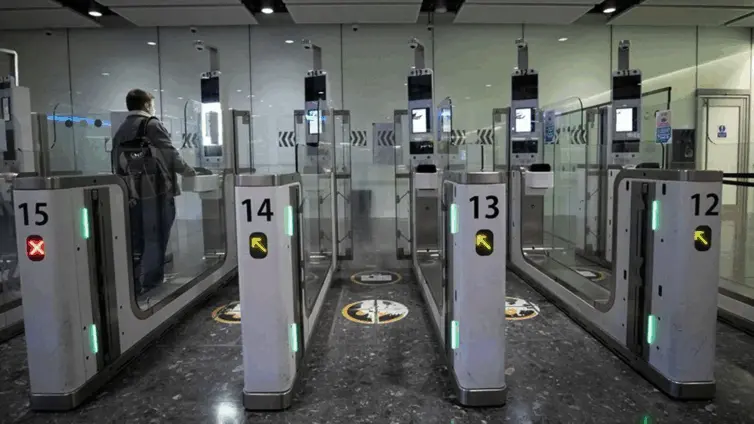Daniella KanKam-Adu, a 37-year-old Ghanaian woman, recently avoided immediate jail time despite being caught at Newcastle Airport with 22.5 kilograms of cannabis. The case has sparked debate about the complexities of cannabis smuggling and the factors considered when sentencing drug mules, particularly those with mitigating circumstances. The significant quantity of the Class B drug, with an estimated street value of £225,000, underscores the scale of the attempted operation. This incident highlights the challenges faced by law enforcement in combating international drug trafficking and the often desperate situations that lead individuals to become involved in such crimes.
On March 3rd, KanKam-Adu arrived at Newcastle Airport on a flight from Canada. Border Force officers, conducting routine checks, stopped her and examined her luggage. Initially, she claimed the bags contained only vapes. However, a thorough search revealed a substantial quantity of cannabis, totaling 22.5 kilograms. The discovery immediately led to her arrest and charges related to cannabis smuggling.
The seized cannabis had a wholesale value of approximately £67,500, but its potential street value soared to around £225,000. This considerable sum emphasizes the lucrative nature of the illegal drug trade and the potential profits that fuel cannabis smuggling operations. The sheer volume of drugs found in KanKam-Adu’s possession pointed to a well-organized effort, raising questions about her role within a larger network.
KanKam-Adu’s defense centered on her claim that she was offered just £250 to transport what she believed were vapes. She stated that a friend approached her with the proposition, suggesting it as a way to earn some money. According to her account, she was provided with tickets to travel to Toronto, where she received further instructions. Her lawyers argued that she was naive and unaware of the true nature of the cargo she was carrying.
Her lawyer further pleaded that she was desperate for funds to secure a deposit on a home. KanKam-Adu had a difficult childhood, spending time in a care home, and was pregnant at the time of the offense, determined to provide a stable environment for her child. Tragically, she suffered a miscarriage while in custody, a detail that added to the emotional weight of the case. “She is a very naive woman,” said Glenn Gatland, her defense lawyer. “She was offered what seemed like easy money at a time when she was desperate.”
KanKam-Adu pleaded guilty to being involved in the fraudulent evasion of the prohibition on importing cannabis. The prosecution accepted her plea that she believed she was smuggling vapes and was unaware of the actual value of the drugs. This acceptance significantly influenced the court’s sentencing decision.
Having already spent three months in custody, the defense argued that this period served as a sufficient deterrent. Glenn Gatland contended that the experience had been a harsh lesson for his client and would prevent her from engaging in similar activities in the future. “The time she has already served in custody will be a significant deterrent,” he stated. The judge appeared to agree, taking into account her personal circumstances and the time already served.
In conclusion, Daniella KanKam-Adu, a Ghanaian smuggler, avoided jail despite her involvement in a substantial cannabis smuggling operation. Her defense, highlighting her naivety, financial desperation, and difficult personal circumstances, played a crucial role in the court’s decision. The case underscores the complexities surrounding cannabis smuggling and the myriad factors that influence sentencing in such cases.
Image Source: MYJOYONLINE





















